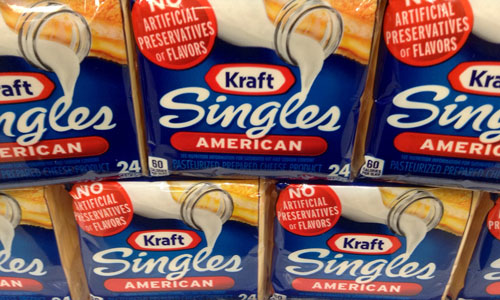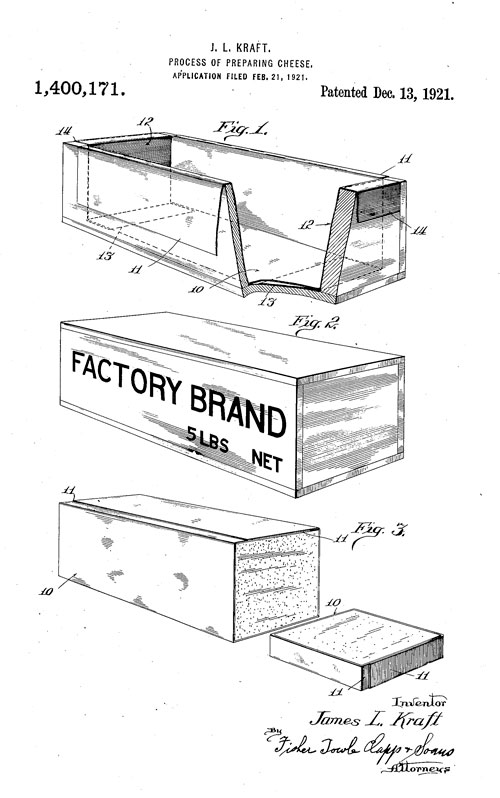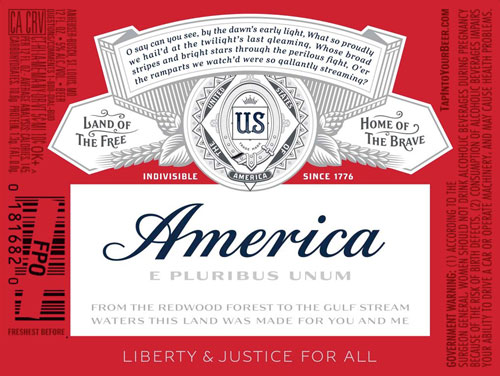
One of the broadest possible geographic terms is, for now, the new name of Budweiser. Does Budweiser deserve "America," and if not, what does?
"It helped us immensely that there was confusion over whether our song was really a Neil Young song. Then there was the mystery about this group from England called America. What's that all about? We had a lot of mystique."
— Dewey Bunnell, one of the three founding members of the folk-rock act America, discussing how the band's name helped drive interest in the act. The band, known "A Horse With No Name," "Ventura Highway," and "Sister Golden Hair," had an unusual starting point—the band, made up of American military brats who grew up in the U.K., essentially picked its name to prevent confusion when gigging in British pubs. Basically, they sounded American because they were actually American. But, as highlighted above, the name simply created more confusion later on. America wasn't the first band to come up with the idea of naming themselves after the country (the United States of America, a wildly experimental band that had released a single album, beat them to it by a couple of years), nor were they the last (the Presidents of the United States of America had the right demeanor for their name).

The Canadian guy who invented American Cheese
James L. Kraft may have spent his childhood as an Ontario farm boy on the wrong side of the U.S. border, but like Ted Cruz on a presidential campaign, his legacy is purely American.
By nature of his upbringing, he had already been exposed to the process of making cheese, and as he reached adulthood, he brought this knowledge to the other side of the border, first by spending time working in a nearby Buffalo dairy.
Soon enough, he found himself in Chicago, with a couple of bucks and a deep knowledge of cheese. Starting in 1903, Kraft began to offer a service to local grocery stores. Early in the morning, he went to the city's main cheese market, tracked down the kinds of cheese grocers were likely to want, and then delivered it to stores in a horse-drawn wagon.
After doing this a while, he noticed something—specifically, how quickly the cheese would spoil in grocery stores. This was a significant problem for a number of reasons, the biggest of which was that this meant cheese didn't hold up very well in warm climates. On top of this, cheese had other problems as well–many cheeses didn't melt evenly and would essentially disintegrate when heated. That led Kraft to begin experimenting with cheese, in an effort to create something that lasted longer and was easier to use.
Meanwhile, a couple of guys in Switzerland were focused on the same problem. When experimenting with a local brand of cheese called Emmentaler Walter Gerber and Fritz Stettler figured out that by using sodium citrate on the cheese while it was melting, the cheese molecules would stick together and hold up perfectly. (This YouTube clip explains why, if you're curious.)
Five years later, Kraft was starting to patent some of his own strategies, which also focused on the idea of melting the cheese into a specific shape. His first such patent, filed in 1916, he filed his first such patent, for a variety of cheese that stores without quickly going bad, that melts without losing its general character.
"The chief object of the invention is to convert cheese of the Cheddar genus into such condition that it may be kept indefinitely without spoiling, under conditions which would ordinarily cause it to spoil, and to accomplish this result without substantially impairing the taste of the cheese," Kraft stated in his initial patent claim.

A later patent filed by Kraft gave the processed product a vessel: a box,lined with metal foil, in which the cheese product was placed into while still in liquid form, and set aside to solidify. (The result had a lot in common with the modern form of an early Kraft company acquisition, Velveeta, though unlike that semi-liquid product, the final product was solid, like traditional cheese.)
The process of making American cheese, which was effectively pasteurization, broke some key rules in terms of what cheese was supposed to be (specifically, loaded with bacteria), but it was hard to argue with the results, or the sales. Culture: The Word on Cheese's Grant Bradley put it as such:
The cheeses of yore, handcrafted in tiny batches on individual farms and later whipped up en masse in large factories, arrived at the local grocer in huge wheels (the most economical way of transporting them and keeping them fresh). James and the rest of the Kraft brothers, however, began to occupy an entirely new production paradigm. Their cheese wasn’t shaped into wheels and aged in a cave—it was a gloopy mass that was heated up, stirred in a cauldron, and removed of all bacteria. It could take on any shape.
It took a few decades for the resulting American cheese to take on its most famous form, as a sliced-up sandwich utility, wrapped up in individual packets. (Kraft's brother, Norman, did much of the work on that front.) But we wouldn't have reached that point without a Canadian dude who was obsessed with cheese.
Considering how much processed food we eat, American cheese may be the most American food of all.
(By the way, it should be noted, as Mental Floss does, that "American cheese" as a term predates Kraft's invention, though it refers to a different thing—it started as a derogatory term for American-made cheddar before Kraft's invention gave it new meaning.)
1,008
The number of miles that the airship America traveled during a failed attempt to cross the Atlantic Ocean in 1910. It was the third failed effort by journalist and explorer Walter Wellman to complete a bold journey using the early aircraft. Just a few years after the Wright Brothers had invented the airplane, Wellman got the crazy idea to fly an airship over the North Pole. He made two separate attempts to cross over with the airship, but failed both times.

Five things that had the nerve to call themselves "America"
- Since 1909, Jesuits have published a weekly newsmagazine called America, a fairly influential magazine that sometimes bucks the official stances of the Catholic Church.
- Comedian and currently bearded human being Jon Stewart's snarkily titled America (The Book), released in 2005, went for the gut punch: "If the presidency is the head of the American body politic, Congress is its gastrointestinal tract," he wrote at one juncture.
- On the other end of the political spectrum, conservative commentator Dinesh D'Souza's 2014 film America: Imagine the World Without Her attempted to make the case that the country's strong history was being threatened, but D'Souza instead found himself fighting with Google over the fact that he picked a title so broad that it was difficult to find showtimes for the film.
- In 2012, electronic musician Dan Deacon became only the latest tunesmith to name his album America. And like Stewart and D'Souza, his reason for doing so was basically political. "I’ve never had faith in government, but like it or not I’m in this system, and if I don’t actively try to do something about it, I’m part of the problem," he told journalist Greg Kot.
- There are a handful of towns that call themselves "America," most notably the ghost town of America, Oklahoma. A 2013 piece in 405 Magazine reveals that the town was not named for the country, but the founder's wife, who happens to be named America.
If AB InBev were to actually register "America" as a trademark—something that legal experts don't think could actually happen—it wouldn't be the first time the "America" product mark has been registered, according to the U.S. Patent & Trade Office.
According to a search of the office's records, just 39 trademarks for the specific word exist, and most have been abandoned. One of the still-active ones is owned by Six Flags; another is owned by America magazine, the Jesuit publication I mentioned above.
But if you expand the search to basically include the word "America" as a single word in a longer phrase, suddenly the results grow to tens of thousands, with obscure brands like America's Socks and America's Favorite Flies, along with less-obscure ones like Hillary for America and, uh … "Make Amerikkka Great Again." (The latter was notable enough that it earned some news coverage this week.)
Mentioning such a broad topic like America makes people think of a lot of things, from politics, to art, to culture, and a million other things in-between. It is one of our most divisive words, in part because it means so much to so many—it brings together many, but for others, it's a symbol of unfulfilled promise.

Imagining one of the largest companies in the world trying to sell its most famous product as "America" invites some obvious cognitive dissonance.
Beer is great. I love beer. But is this specific beer worthy of being called "America"? I think not—it's too divisive, and raises too many questions for a country that can't even collectively decide whether to tie its shoes.
I argue that, when it comes to mass-produced items called "America," we save it for the cheese. Pretty much everyone can agree on that.